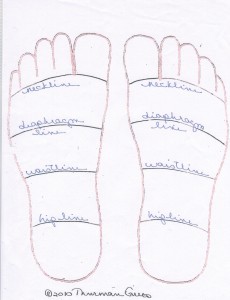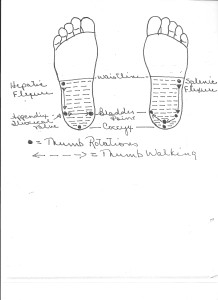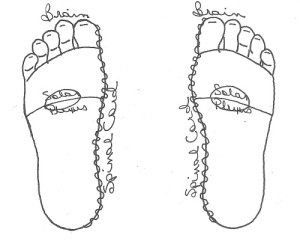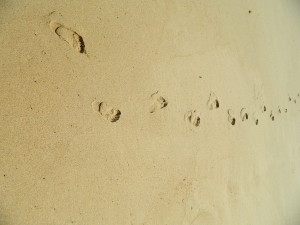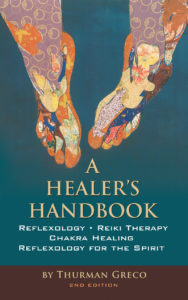How Stressed Are You Anyway? 6 Common Responses to Stress and What You Can Do About Them.
How does your stress add up for you? Are you more stressed than usual? Are you more stressed than your friends and family?
Does everything seem to be an emergency? In other words, is your stress becoming out of control? Do you feel as if you need to see a professional for help controlling your stress response?
Is getting back and forth to work stressful for you? Is your work situation stressful? Many of our stress responses can be planned for and, hopefully, controlled.
If you develop the habit of staying tuned to your body, you can become aware of upcoming stress before things get out of control. Your physical body will send you signals. What are they?
DO YOU CLENCH YOUR MUSCLES? This is easy to check out. Begin by checking your body for clenched muscles. Begin at the top of your head and work your way down to your toes. Favorite stress spots for many people are jaws and teeth, neck and shoulders, fists, lower spine, and feet.
DO YOU GRIND YOUR TEETH? Many people do this when they are stressed. This habit carries over to your sleep for some.
DO YOUR HANDS GET COLD? Generally speaking, your cold hands indicate a stressed body. To test whether your hands are cold or not, hold one of your hands on your neck. If it is cooler than your body, you are probably stressed.
ARE YOU SWEATING? It can be that you are overheated. But, sweating can also be an indication that you are stressed. As humans, we sweat when we are in a protection mode. If you find yourself sweating, ask yourself what is causing this situation.
IS YOUR PULSE RACING? If you are not exerting yourself and your pulse is racing, you are most probably stressed. What is happening?
DO YOU REWIND THE SAME THOUGHT ENDLESSLY? This is a common human condition. When we are upset about something, we rewind the same concern for minutes, hours, days. Like a stuck record, we think about the same thing over and over and over.
A good thing to do is realize that you have a situation upsetting you. Once you realize what the cause may be, you can seek a solution.
Can you brainstorm with a friend or colleague to find a solution. For example, you may have a difficult commute to and from work. Can you take a bus or train instead of driving?
It may be that your situation is too much for you to handle alone and you need to seek professional help to identify your stressor and then deal with it. If that is the case, go for it! You will be much better off when you find a solution to your problem.
Meanwhile, there are a couple of generic things you can do which will help until you begin your therapy. These things include
MEDITATION – Spend a few minutes each day meditating . This should help you cope with your situation while promoting a positive attitude. You can take a meditation class or find or write guided meditation focusing on your situation.
Either way, meditation promotes homeostasis which can only help because it promotes the balance of all your body systems.
TAKE INVENTORY DAILY. A good thing to do is to take an inventory daily of the things in your life which might affect you today. This inventory will help you prepare for all the little things which add up to stress. This inventory will include things which are not necessarily major sources of stress. But they are there – waiting to happen. Being aware of them in advance helps.
With a little practice, this inventory can help reduce your stress levels daily. More tips will follow in future blog posts. Your goal is to try them out and choose the ones which work best for you.
Thank you for reading this article. Please refer it to your preferred social media network.
10 Easy Ways to Live a Longer Life
Living a longer life is a commitment to a specific lifestyle which promotes good health. Your first step to living a longer life is making this commitment to long-term good health and longevity.
You begin this path to live a longer life and have long term good health when you realize and understand you can’t just blame your genes for your health. Your continued good health depends on developing habits and practicing useful things regularly that support your commitment.
Develop your plan for a longer life now. Plan how your life will be when you are in your 80’s, 90’s, or even 100. Will you be alert and active with friends? Will you be living alone? Will you be mentally alert?
Imagine yourself as a healthy person living a longer life. Focus on this goal. Be ready to make changes in your lifestyle to achieve the results you want.
Make regular reflexology sessions a part of your life.
For starters, review your diet. Are you consuming generous servings of vegetables and fruits? Do you eat lean protein every day? Do you eat whole grain foods, brown rice, nuts, and legumes? (I’ll cover the diet portion of a longevity lifestyle in future posts.)
Meanwhile…
Take care to prevent overeating. If you eat a proper diet in the proper amounts, you should have energy, you will slow the aging process, and you will postpone or prevent chronic diseases.
If you can prevent overeating, your body will be able to handle more types of stress, something that’s important if you are concerned about living a long life.
Develop a daily walking routine. Walking 10,000 steps each day will increase blood flow to the brain resulting in an improved memory. How can you do this? Walk more. Walk during your lunch hour. Take the stairs instead of the elevator. Make it a goal to get off your seat and on your feet. Choose volunteer activities which require walking.
Take your vitamins! But, not just any vitamins. You don’t want to waste your money on nutrients you don’t need. Do some research. Make your knowledge current before you decide which vitamins to take. I’ll share more information about minerals and vitamins in future blog posts. For now, I suggest you look into vitamin D3. Find out for yourself if that’s a vitamin you need. When you take your vitamins, take them with food to promote absorption.
Take an aspirin a day…if your healthcare provider says it’s okay. I believe aspirin in moderation on a daily basis can help prevent diseases such as heart attack and some form of cancer. But, again, don’t take my word on this.
Hope you are enjoying this new series of posts on longevity! If so, please share them with your preferred social media network.
Thanks for reading!
Thurman Greco
